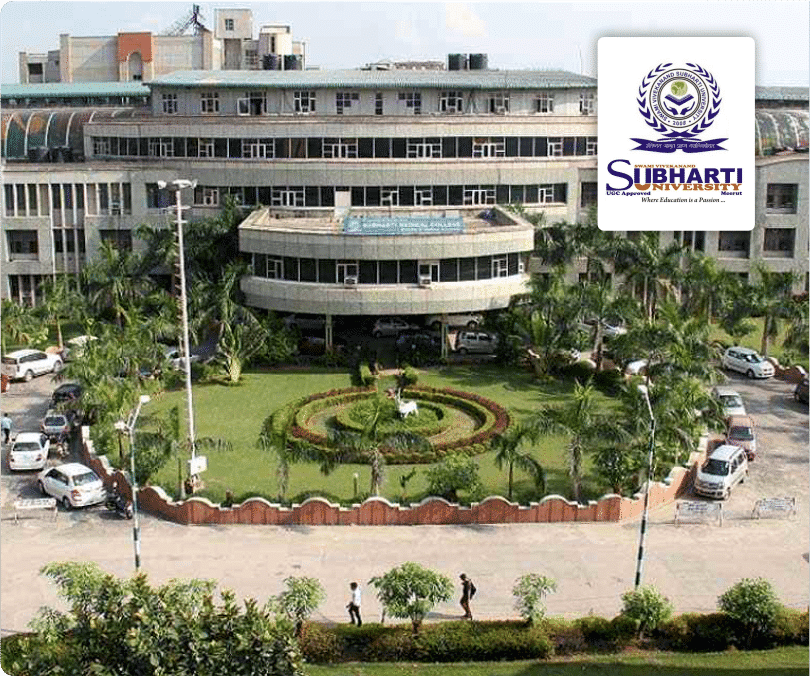
MBA HR Management Syllabus- Core Subjects and Semester-Wise Syllabus
Human Resource Management is a key part of every company. HR managers handle this work by making sure employees are happy, work runs smoothly, and the company grows. Doing an MBA in HR Management helps students learn important skills to manage HR teams well. This course teaches topics like hiring, training, salaries, labor laws, and how employees behave at work. It is a great choice for those who want to build a career in HR.
In this blog, we will discuss the MBA HR Management syllabus, including core subjects and semester-wise topics, giving a detailed overview of what students can expect during the program.
Online/Distance MBA Universities In Other Cities
Overview of MBA HR Management Course
The MBA HR Management course is a two-year postgraduate course designed to develop expertise in human resource management, talent acquisition, labor laws, and HR analytics. This MBA course is offered in regular, online, and distance learning modes. To ensure quality education, candidates should choose a UGC-recognized and NAAC-accredited university. Graduates of this course can pursue careers as HR Managers, Talent Acquisition Specialists, Training & Development Managers, and HR Business Partners. Here is an overview of MBA HR Management course:-
| Aspect | Details |
|---|---|
| Course Name | MBA HR Management |
| Duration | 2 years (4 semesters) |
| Eligibility | Bachelor’s degree with minimum 50% marks (varies by university) |
| Admission Process | Based on entrance exams like CAT, MAT, XAT, GMAT, or university-specific exams |
| Recognition | UGC |
| Mode | Regular, Distance and Online |
| Fees | Regular MBA: ₹5-25 Lakh (varies by institute) Distance MBA: ₹50,000 – ₹2 Lakh Online MBA: ₹60,000 – ₹3 Lakh |
| Job Roles After MBA HR | HR Manager, Talent Acquisition Specialist, Compensation Analyst, Training & Development Manager, HR Business Partner |
| Average Salary Package | ₹6-12 LPA (varies based on experience and company) |
| Top Recruiters | Deloitte, Accenture, TCS, Infosys, HCL, Amazon, Reliance, Wipro, KPMG, EY |
| Career Growth | High demand for HR professionals with expertise in HR analytics, labor laws, and workforce planning |
MBA HR Management Course Duration & Structure
- Course Duration: 2 years (4 semesters)
- Learning Approach: Classroom lectures, case studies, internships, group projects, and industry exposure
- Specializations: Talent management, HR analytics, employee relations, compensation, and training
This MBA course syllabus ensures that graduates are well-prepared to handle the complexities of human resources in different industries.
Core Subjects in MBA HR Management
The MBA HR Management syllabus includes core subjects and elective courses that help students understand the basics of human resources. These subjects teach important skills needed to manage employees, improve workplace policies, and handle company growth. Here are some key subjects covered in the course:
Human Resource Management – This subject gives an overview of HR tasks like hiring, employee engagement, performance management, and company policies. It is one of the most important subjects in an MBA HR course.
Organizational Behavior – Students learn how people and teams work together in a company. Topics include motivation, leadership styles, and workplace culture.
Employee Relations & Labor Laws – This subject teaches about rules and laws that protect employees at work. It covers workers’ rights, labor unions, and ways to solve conflicts between employees and the company. HR professionals need this knowledge to follow legal rules and maintain a fair workplace.
Talent Acquisition & Workforce Planning – This subject focuses on hiring the right employees for a company. It includes how to conduct interviews, attract top talent, and build a strong company image. It also helps HR professionals plan for future hiring needs to keep the company running smoothly.
Compensation & Benefits Management – Students learn about salary structures, bonuses, employee benefits, and performance-based rewards.
Performance Management & Appraisal Systems – This subject teaches how to set performance goals, review employee work, and create reward systems that boost productivity.
HR Analytics & Data-Driven Decision Making – Data is very important in HR. This subject helps professionals use HR data to improve employee management and make better decisions.
Training & Development – Employee skill-building and leadership training are necessary for business success. This subject focuses on creating training programs to help employees grow.
Strategic Human Resource Management – HR should match business goals. This subject teaches how to align HR strategies with company growth plans and make HR a key business function.
Leadership & Change Management – Students learn about different leadership styles, how to handle company changes, and ways to manage employees during transitions.
Semester-Wise Syllabus Breakdown
The MBA HR Management program is structured semester-wise to ensure step-by-step learning. Below is a breakdown of the MBA course syllabus for each semester:
| Semester | Subjects |
|---|---|
| Semester 1: Foundation of HR & Business Management | Principles of Management Organizational Behavior Business Economics Financial & Accounting Management Business Communication Basics of Human Resource Management |
| Semester 2: HR Policies & Industrial Relations | Talent Acquisition & Retention Strategies Labor Laws & Industrial Relations Compensation & Benefits Planning Business Analytics for HR Professionals Performance & Reward Management Operations & Supply Chain Management |
| Semester 3: Strategic HR & Leadership | Strategic Human Resource Management HR Analytics & Data Interpretation Leadership & Change Management Corporate Social Responsibility & Business Ethics Learning & Development Strategies Internship / Live Project Submission |
| Semester 4: HR Specializations & Practical Applications | HR in the Digital Age International HRM & Global Workforce Management Conflict Resolution & Negotiation Skills Entrepreneurship & HR Consulting Dissertation / Final Research Project |
Elective Subjects in MBA HR
In addition to core subjects, students can choose elective subjects based on their career goals. These electives help students specialize in specific HR domains and stay updated with industry trends. Some popular electives of MBA HR management courses include:
- Artificial Intelligence in HR & Workforce Automation
- Diversity & Inclusion Strategies
- Psychology & Behavioral Science for HR Professionals
- Corporate & Employment Laws
- HR Technology & Automation Tools
Practical Learning & Internships
Practical exposure enhances students’ problem-solving skills and prepares them for real-world HR challenges. A major part of MBA HR management courses involves practical learning through:
- Summer internships in HR departments of leading organizations
- HR software training (SAP HR, Workday, Oracle HCM)
- Live case studies & HR consulting projects
- Workshops on employee engagement and leadership training
Career Opportunities After MBA in HR
MBA HR courses open up a wide range of career opportunities across industries. HR professionals are responsible for hiring, employee engagement, training, payroll, and compliance. Below are some top career options after completing an MBA HR Management course, along with their roles, salary details, and top recruiters.
| Job Role | Description | Average Salary (LPA) | Top Recruiters |
|---|---|---|---|
| HR Manager | Manages recruitment, training, payroll, and employee policies. Resolves grievances and fosters a positive workplace culture. | ₹6-15 LPA | TCS, Infosys, Amazon, Wipro, Accenture |
| Talent Acquisition Specialist | Focuses on hiring the right candidates, conducting interviews, and workforce planning. | ₹5-12 LPA | LinkedIn, HCL, Cognizant, Flipkart |
| Training & Development Manager | Designs and conducts training programs to enhance employee skills and career growth. | ₹6-14 LPA | Google, IBM, Capgemini, Deloitte |
| Compensation & Benefits Analyst | Develops salary structures, employee benefits, and analyzes industry compensation trends. | ₹7-15 LPA | EY, KPMG, PwC, HDFC Bank |
| HR Business Partner | Aligns HR policies with company goals and enhances workforce productivity. | ₹8-18 LPA | Amazon, Microsoft, Tata Group, Mahindra & Mahindra |
| Employee Relations & Compliance Manager | Ensures legal compliance, resolves disputes, and promotes workplace harmony. | ₹6-12 LPA | Reliance, Nestle, PepsiCo, Larsen & Toubro |
| HR Analytics Specialist | Uses data analysis for hiring trends, performance management, and employee retention. | ₹7-16 LPA | Accenture, IBM, Infosys, Oracle |
| Organizational Development Consultant | Improves work culture, leadership, and designs change management programs. | ₹8-20 LPA | McKinsey, BCG, Bain & Company |
| Labor Relations Manager | Specializes in industrial relations, trade unions, and conflict resolution. | ₹6-12 LPA | Government Organizations, Manufacturing Firms, Tata Steel, Vedanta |
| HR Consultant | Provides expert HR solutions, recruitment strategies, and policy development. | ₹8-22 LPA | KPMG, PwC, Deloitte, Capgemini |
Best Alternatives to a Regular MBA in HR Management
A regular MBA HR Management course is a popular choice, but it may not be the best fit for everyone. Many professionals and students look for flexible, affordable, or specialized alternatives to gain HR expertise. Below are some of the best alternatives to a regular MBA in HR Management that offer career growth and industry-relevant skills.
1. Executive MBA in HR Management
An Executive MBA in HR Management is designed for working professionals who want to advance their careers without leaving their jobs. This course focuses on leadership skills, strategic HR management, and business decision-making. Classes are conducted on weekends or evenings, making it convenient for professionals to balance work and studies. It is ideal for those aiming for higher managerial positions in human resources and business leadership.
2. Online MBA in HR Management
The Online MBA HR Management course is a flexible alternative to a regular MBA, allowing students to learn from anywhere. This program includes virtual lectures, case studies, and interactive sessions with industry experts. Many UGC-recognized and NAAC-accredited universities like Jain Online, Lovely Professional University, and Manipal Online offer online MBA programs with the same curriculum as regular MBAs. It is suitable for working professionals, entrepreneurs, and students who prefer self-paced learning while gaining expertise in recruitment, employee engagement, and labor laws.
3. Distance MBA in HR Management
Distance MBA HR Management course is an excellent option for students who cannot attend regular classes. This course provides self-paced learning materials, online discussions, and recorded lectures, making it accessible for students across different locations. Top universities like IGNOU, LPU Distance and many other universities offer distance MBA courses in HR. It is best for those looking for an affordable and flexible way to gain an HR degree without compromising their current responsibilities.
4. PG Diploma in HR Management
A Postgraduate Diploma in HR Management (PGDHRM) is a shorter alternative to an MBA. It is usually completed in one year. The course covers important HR topics such as recruitment, training, compensation, and labor laws. This diploma is available in regular, online, and distance learning formats. It is a cost-effective option for those who want to specialize in HR quickly. Many reputed institutes, including XLRI, NMIMS, and IIMs, offer PGDHRM courses with industry-focused training.
5. Master’s in Human Resource Management (MHRM)
A Master’s in Human Resource Management (MHRM) is a specialized master’s degree that focuses entirely on human resource functions. Unlike an MBA, which includes general business subjects, MHRM is more HR-centric, covering areas like employee relations, HR analytics, labor laws, and workplace psychology. Universities like Delhi University, Tata Institute of Social Sciences (TISS), and Xavier Labour Relations Institute (XLRI) offer this program for students who want to deepen their HR knowledge and expertise.
6. Certification Courses in HR Management
For those looking for short-term skill development, certification courses in HR are a great alternative. Certifications like SHRM (Society for Human Resource Management), HRCI (Human Resource Certification Institute), and XLRI HR certifications provide specialized knowledge in HR analytics, labor laws, compensation planning, and workforce management. These certifications help professionals gain quick expertise and enhance their resumes without committing to a full MBA program.
Conclusion
MBA HR Management course prepares students for high-growth career opportunities in banking, IT, healthcare, consulting, and manufacturing sectors. HR professionals help businesses create a positive work environment, implement strategic hiring processes, and manage workforce performance. As companies focus on employee well-being and talent retention, HR expertise is in high demand.
If you want a career that blends people skills with business strategy, the MBA HR management course is the right path for you.
Most Popular Blogs

Online BCA Courses in Jain University Online

Distance Education at Pondicherry University

Top 4 colleges to pursue Distance BBA in Andhra Pradesh

What are the top distance BSc colleges in Kerala

Know about the top 3 distance BCom universities in Madhya Pradesh



















